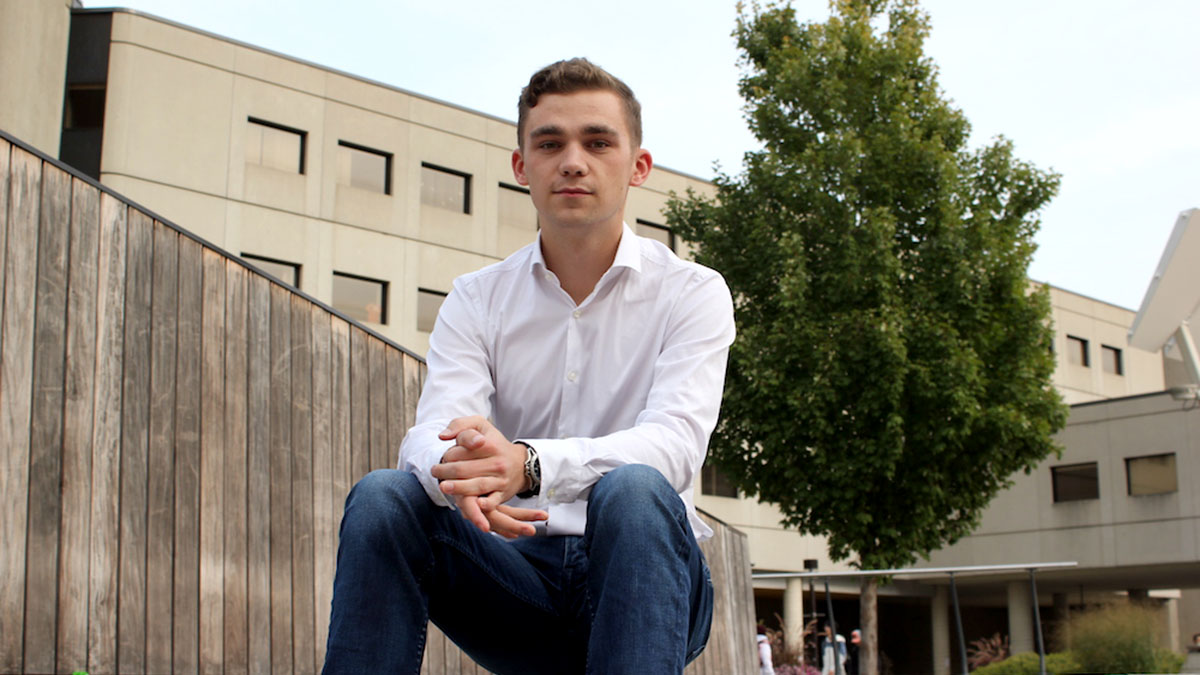The federal Liberal government faces an uphill climb leading to the next election as polling shows younger Canadians who helped elect Justin Trudeau’s team in 2015 are giving the Conservatives a closer look amid the worst affordability crisis in decades.
Abacus Data’s recent polls suggests 40 per cent of millennials (born from 1981 to 1996) and 32 per cent of Generation Z (those born between 1997 and 2012) would vote for the Conservatives. In comparison, 21 per cent millennials and 24 per cent Gen Z would vote for the Liberals.
The president of Conservateurs uOttawa Conservatives, Levi Cottingham, said the club has seen an increase in members this year. “We have about 120 members, up a lot, especially since the pandemic,” he said.
Cottingham says many young voters are struggling with cost of living and housing affordability and are looking for someone “to shake things up.”
“They’ve been attracted to the Conservative Party of Canada because of the message, the messages of doing things, shaking things up and hopefully getting some results,” he said.
Jaide Kassam, a criminology and criminal justice student at Carleton University, became interested in the Conservatives after interning with the federal caucus in 2021.
Kassam says there is a stereotype that most conservatives are white men, but her experience has been different.
“I found it very welcoming especially as a woman and a minority it was a very supportive environment where I was able to connect with like-minded individuals,” Kassam said.

According to Abacus, the two top issues for young voters are cost of living and housing affordability, on both of which the federal Conservatives are focusing, according to former Conservative staffer Karamveer Lalh.
“They have been more effective than the other parties in terms of taking advantage of what the current economic conditions are like in this country,” said Lalh, who worked as a political staffer for the Conservative Party of Canada in the 2019 elections.
Lalh says young voters are increasingly supporting Pierre Poilievre’s party because there is a lack of confidence in the Liberal government and young voters are disappointed with current policies.
“If their voters are angry and upset then you have to convince them that you’re the ones to be trusted to fix the problems that were facing,” said Lalh.
Conrad Winn, a professor of political science at Carleton University with expertise in public opinion and political culture, agrees it is dissatisfaction with the current government that is giving the Conservative party the upper hand.
“The timing is good. There is a fair amount of worry amongst the electorate about where the Canadian economy is going,” he said.
Social media has also played an important role in helping the Conservatives reach young people. Poilievre uploads regularly to social media platforms including YouTube and Instagram.
Cottingham said he believes Poilievre’s direct approach is attracting younger audiences.
“He doesn’t dance around issues. He gets to the point which is really important when people… [who are] not really interested in politics are probably not going to listen to a long video that goes on and on. It’s really important to be very concise and clear,” Cottingham added.
Kassam agreed that the Conservative party has a strong social media presence that Canadian youth connect with.
“All of the MPs are very good with relaying information that are kind of in like layman’s terms for younger minds.”
Things could change
Lalh said he thinks there is still time for Liberals to win back young voters before the next election because “I expect this government to go the (full term in office) distance.”
But the Liberal government will have to focus on the housing crisis.
“Unless we have, I think, a massive effort to build new housing, I would suspect that the next election would largely be focused on cost of living and housing issues,” said Lalh.
Cottingham said he is just happy to see younger Canadians interested in politics regardless of their affiliations.
“I see lots of people on campus getting involved in whichever organization they feel suits them best and that’s just really exciting for me to see,” he said.
“The more we use our voices the more our voices are heard.”




